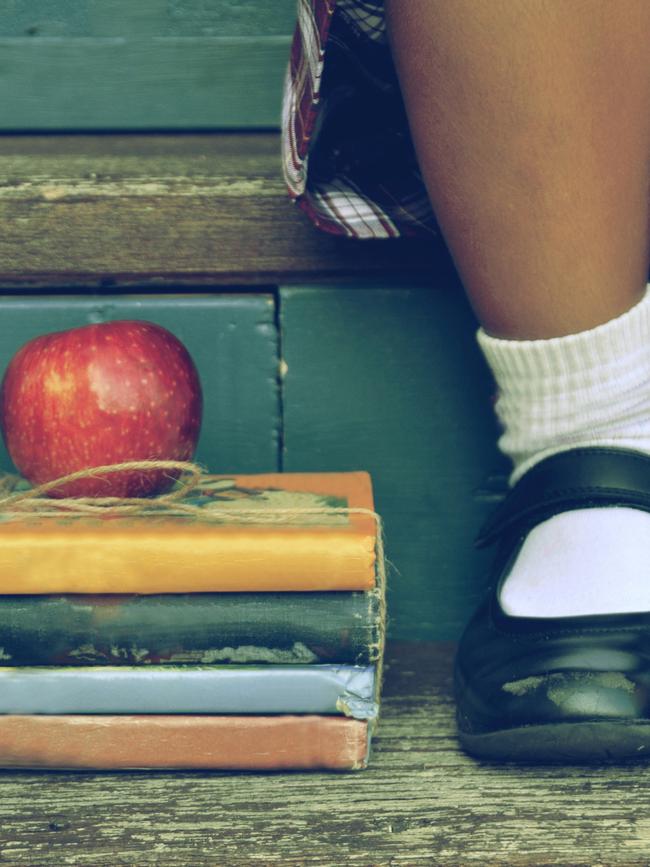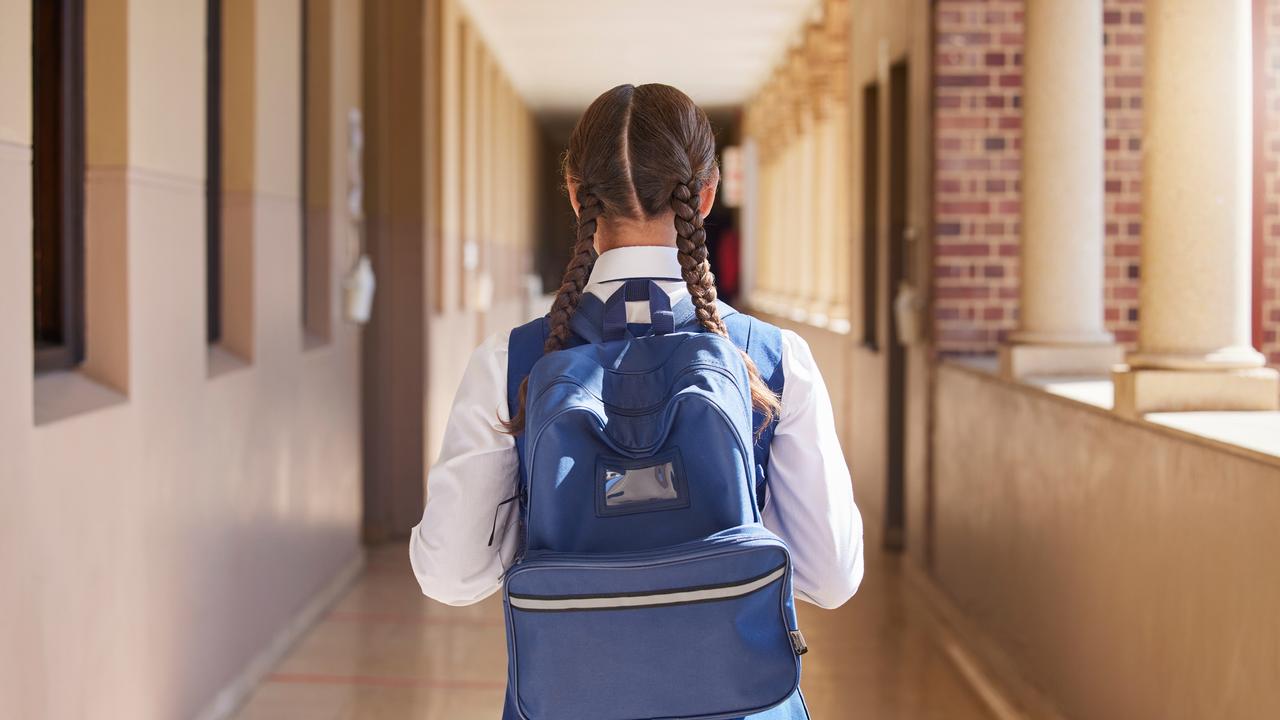Why parents should delay the start of schooling for their children
Parents should encourage their children to play and delay the start of schooling if possible, Australia’s number on parenting writer Dr Justin Coulson says.

School Life
Don't miss out on the headlines from School Life. Followed categories will be added to My News.
One of the biggest debates between parents is whether they should delay their child’s start in school. Should we start them early because childcare is so expensive? Or because they’re not stimulated enough at home? Or because parents are eager to return to paid employment?
Should we hold them back (it’s called red-shirting) because we’re not sure they’re ready and we want them to develop more?
Or because all of those articles say older is better? Or because we know they’ll be bigger and better?
In 2017 Australian researcher Dr Amanda Mergler found that the question of when to send our little ones to school is actually causing anxiety for parents.
It’s great that parents want to make sure they are giving their kids the best start in life. But our best intentions are creating stress and pressure for us and our kids.
The school starting age varies from state to state but under current laws there may be kids starting school who are as young as four-and-a-half.

With the adoption of the national curriculum, they are expected to do the same work and behave in a structured environment with the same skill as kids who are as old as six when they begin.
Clearly there are significant developmental differences between a six year-old and a child 18 months their junior.
A recent study by Stanford University found that children who weren’t enrolled in school until the age of six scored better on tests of ‘executive function’. Also known as self-control, it’s the thing that helps kids focus, be aware, manage time and deal well with distractions.
Self control (and executive function more generally) is crucial to successful learning and development.
MORE FROM DR JUSTIN COULSON
HOW TO SAVE YOUR KIDS FROM TOO MUCH ‘TOXIC’ SCREEN TIME
WHY USING TRACKING APPS ON YOUR KIDS WILL BREAK THEIR TRUST
Another study demonstrated that delaying formalised schooling until age seven reduces inattention and hyperactivity in kids by 73 per cent (measured at age 11), which again boosts self control and ability to learn.
When it comes to starting school, the best evidence suggests we’re starting them too young. So, are parents who delay starting their kids in school on the right track?
Well, yes … and no. Scandinavian countries are at the forefront of enrolling kids in school later in life. They’re also at the forefront of optimal educational outcomes on a global scale.
In Finland, compulsory schooling doesn’t begin until age seven and most kids begin their formal schooling at age eight.
Yet, on Pisa tests (which rank nations on educational achievement) Finnish pupils produce some of the world’s highest scores in maths, science and reading.
But here is the most important thing: their success is not because of the age they start school, but how they spent those years up until formal schooling began. And for Finnish kids, that time is spent at home, or in a form of pre-kindergarten, where the focus is on play and social skills. Maths, reading and writing don’t come in until much later. And this focus on play pays off.

Pasi Sahlberg, Finnish educator and scholar, says that “a play-based program of fun, physical activity and learning … is crucial because it allows a focus on whole child development. Children learn social skills, creativity, empathy and how to use their imagination for learning”.
Study after study has affirmed the importance of play for our children’s physical and mental health. It helps boost language development, problem solving, risk management and independent learning skills.
It is linked to improvements in academic skills and classroom behaviour, and it leads to healthy emotional attitudes.
Until about the age of six or better yet, seven, children don’t need too much structure. In fact, they should not be doing any structured class time, not even around numeracy and literacy. Instead they need the freedom to be creative and to explore the world around them.
Just like the Finnish students have.

However, as we know that’s not how schooling works in Australia.
With the adoption of the national curriculum, most of the play-based learning has gone out the window.
It has been replaced with numeracy and literacy benchmarks, science achievement standards and even includes a ‘digital technologies’ assessment. And this is a problem for our kids.
Australian parents are in an untenable position. In an ideal world parents would be the ones to give this kind of play-based, exploratory and creatively-enriching environment to our children. But kids are legally required to attend school and, from a financial perspective, to own a home in most of our major cities requires that most families have two parents working.
Kids can only explore so much on a 600sq m block.
But there is much we can do. At home we can make sure our kids aren’t too bogged down in homework, which is empirically shown to be unhelpful prior to high school, and we can minimise structured after school activities.
We can ensure they get outside, and they have space and time to think and dream. And, most importantly, we can give them plenty of time to play.
As to the answer to the big debate — yes, if your family situation permits it, delay. But not because your child doesn’t know his letters, or can’t use the toilet yet, but because the real work of childhood is play.
STARTING SCHOOL ACROSS AUSTRALIA
1. HOW IT WORKS IN NSW
By law in NSW, your child can start school as long as they turn five by July 31 of their kindergarten year. And by law all children must be in formal school by the age of six. This range in ages could mean there are children aged four-and-a-half in the same class as children aged six. NSW has the latest school start cut-off in the country.

2. NATIONAL START AGE
The age at which your child starts school is decided state by state, but with the launch of the National Curriculum in 2015, experts such as Kathy Walker from Early Life Foundations have pushed for a national starting age.
3. STATE BY STATE
Tasmania has the earliest cut off age for children starting school. In the Apple Isle, children must be five by January 1 of the year they start school. In Victoria and the ACT, a child must be five by April 30 and in Queensland, WA and the NT, they must be five by June 30. Despite this, one in six Australian children are held back from starting school early.
4. WHY DELAYING IS BEST
A study conducted by Stanford University researchers in California in 2015 found benefits in delaying the age your child starts primary school. A child whose school start age was delayed by a year displayed a reduction in hyperactivity and inattention by up to 73 per cent.
5. A RANGE IN AGES
Despite the debate, the number of four year olds starting school in NSW is comparatively lower than their five- and six-year-old classmates. In 2016, 1391 four-year-olds started school in NSW, along with more than 53,000 five-year-olds and 15,816 children aged six or over.
Originally published as Why parents should delay the start of schooling for their children


